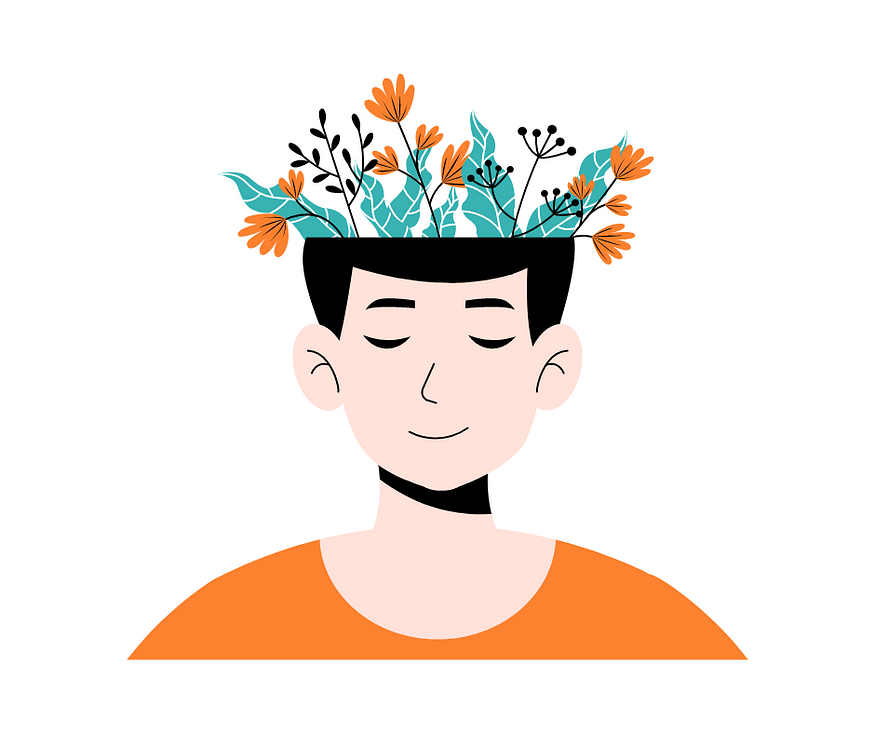
For years, I used to think self-care was a luxury, something people did when they had extra time or money. As a guy, I never thought I needed it. Like many men, I believed in pushing through stress, staying strong, and getting things done no matter how I felt. But then, life started catching up with me. Work stress piled on, relationships became strained, and I found myself exhausted.
That’s when I realised something had to change. Self-care wasn’t a luxury — it was a necessity. I began to learn how important it was to take care of my mind and body. Slowly, I started treating myself better, and it made a huge difference in my life.
So how to treat yourself as a man? Here’s how I learnt to prioritise my wellness and how you can do the same.
1. Learning to Relax: Your Journey to Find Peace

Stress was my constant companion. There were days when I felt like my mind was racing at 100 miles an hour, and I couldn’t slow down. It wasn’t until I hit a point of near burnout that I knew something had to give.
That’s when I discovered simple relaxation techniques that I could do anytime, anywhere. It started with deep breathing. It sounds almost too simple, but during one of my more stressful workdays, I found myself overwhelmed and unable to focus. I remembered something I had read about taking deep breaths to calm down. I gave it a try — breathing in for four times, holding for four, and breathing out for another four. To my surprise, it worked. My mind started to quiet down, and I felt a little more in control.
Next, I tried guided meditation. At first, I was sceptical. Meditation seemed a bit too “out there” for me, but I gave it a shot using an app. Five minutes in, I felt an unexpected sense of calm. It was like hitting a reset button for my mind. Over time, meditation became one of my go-to tools for managing stress.
Now, when I feel overwhelmed, I have these relaxation techniques in my back pocket. Whether it’s deep breathing or a quick meditation session, I’m able to find moments of calm in the chaos of daily life.
2. Taking Care of Your Mental Health: The Power of Talking

I used to believe that mental health was something you just dealt with on your own. I thought therapy or talking about emotions was for other people, not for me. But as the stress built up, I began to feel more anxious and disconnected. I knew I needed help.
I decided to see a therapist. Walking into that office for the first time felt like admitting defeat, but it turned out to be one of the best decisions I ever made. Therapy gave me a space to express my feelings — things I hadn’t even realised were weighing me down. It wasn’t about venting; it was about learning healthy coping mechanisms and understanding my emotional triggers.
Alongside therapy, I also started journaling. I’d always thought writing down my thoughts was something only writers did, but it became a form of therapy in itself. Every night, I’d write down what happened during the day, how I felt, and any small victories or struggles I had. It helped me clear my mind and made me more aware of my emotions.
Taking care of my mental health wasn’t easy, but it was necessary. If you’re reading this and feel like you’re trying to do it all on your own, know that it’s okay to seek help. It doesn’t make you weak — it makes you stronger.
3. The Importance of Self-Improvement: Setting Goals for Yourself

As I started focusing on self-care, I realised I didn’t just want to survive — I wanted to thrive. Self-improvement became a huge part of my journey. I began setting goals for myself, something I had been neglecting for years.
One of my first goals was to learn a new skill. I had always been interested in photography but never made the time for it. So, I bought a camera, watched some online tutorials, and started going out on weekends to take pictures. The more I learnt, the more I realised how satisfying it was to get better at something I enjoyed. It wasn’t about mastering the technical side of photography; it was about feeling accomplished and growing as a person.
Setting goals for personal growth helped me in other areas of my life, too. I started challenging myself to be more present in my relationships, to work on communication, and to balance work and life better. With each goal I set and achieved, my confidence grew. If there’s something you’ve always wanted to do — whether it’s picking up a hobby or improving a skill — go for it. Self-improvement adds purpose and fulfilment to your life.
4. Stress Relief: Finding What Works for You

At one point, my stress levels were so high that I knew I needed more than meditation. I needed a way to unwind after long, exhausting days. That’s when I started looking into massages. I booked myself a massage, not knowing what to expect. The experience was life-changing. Afterward, I felt like I had shed layers of tension I didn’t even know I was carrying.
I also rediscovered old hobbies that helped me disconnect from stress. For me, it was video games and cycling. Getting back on my bike and riding through the city allowed me to clear my head while gaming gave me an escape after a hard day’s work. These were small but effective ways to release stress and have fun again.
Sometimes self-care is about finding the little things that bring you joy. Whether it’s a spa day, a walk in nature, or even indulging in a good book or movie, find what helps you relax and make it part of your routine.
5. Healthy Habits: Treating Your Body Right

Self-care isn’t about mental health — it’s about physical health, too. Over time, I began focussing on building healthy habits that supported my wellness.
First, I revamped my fitness routine. I had always gone to the gym, but now I made it a priority to go consistently and mix things up. I alternated between weightlifting and cardio, and even tried yoga for the first time. Yoga was something I never thought I’d be into, but it improved my flexibility and helped me stay grounded. My gym routine wasn’t about getting fit — it was a way to release stress and take care of my body.
On top of that, I started paying more attention to my diet. I used to eat whatever was convenient — fast food, snacks, sugary drinks — but I knew it was taking a toll on my energy levels. Slowly, I introduced more whole foods like vegetables, lean proteins, and grains into my diet. I started meal prepping, and soon I noticed that I felt more energetic and focused.
It wasn’t about going on a strict diet or following the latest fitness trends — it was about building habits that made me feel better, physically and mentally.
Conclusion: Treat Yourself Because You Matter
Through this journey, I’ve learnt that when men treat themselves to self-care, it’s not about being indulgent — it’s about being responsible for your own well-being. Taking care of yourself makes you a better partner, friend, and person.
So, if you’ve been putting yourself last, now’s the time to change that. Whether you start small with a deep breathing exercise or go all-in with a fitness routine, find what works for you. Self-care is a personal journey, and every step you take makes a difference.
Take a moment to ask yourself: How will you treat yourself today? Whether it’s giving yourself a break or setting a new goal, it’s never too late to prioritise your well-being.
